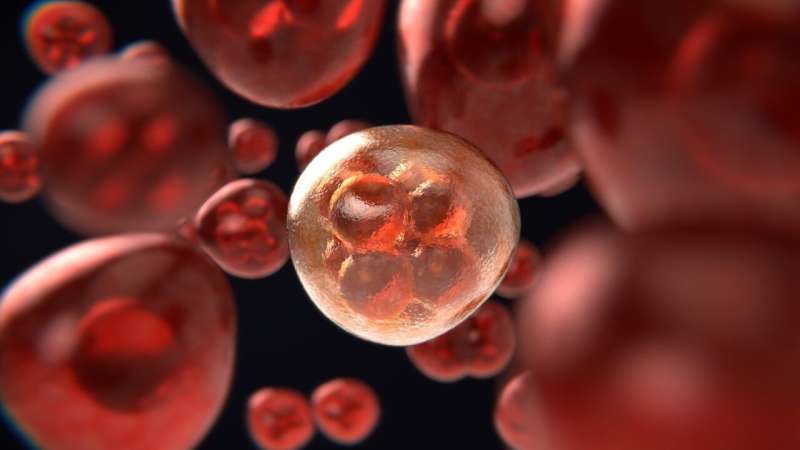This article has been reviewed according to Science X's editorial process and policies. Editors have highlighted the following attributes while ensuring the content's credibility:
fact-checked
proofread
UPR-induced ovarian cancer cell fusion: A mechanism favoring drug resistance?

A new editorial paper was published in Oncoscience, titled, "UPR-induced ovarian cancer cell fusion: a mechanism favoring drug resistance?"
In this editorial, researchers Melisa Husein, Patrick Petignat and Marie Cohen from the University of Geneva discuss epithelial ovarian cancer. Epithelial ovarian cancer is an almost universally fatal disease, ranked as the top cause of gynecologic cancer-related deaths in industrialized countries in 2021. Apart from most diagnoses being advanced-stage diseases, the recurrence rates are exceptionally 70% within the first five years.
In addition to surgical resurrection, the overall primary treatment for cancer is adjuvant care with chemotherapeutic drugs such as paclitaxel in combination with platinum-based reagents. Recurring ovarian cancers are associated with chemotherapy resistance and high death rates because of resistance to provided therapies. In their editorial, the researchers discuss chemotherapeutic resistance in recurring ovarian cancer with a focus on the unfolded protein response (UPR) and its effect on polyploid giant cancer cells (PGCCs) formation.
The importance of understanding recurring and chemotherapy-resistant ovarian cancers includes investigating cancer cell molecular mechanisms. Related to this, a quiescent population of cancer cells has been in the spotlight. Cancer stem cells represent a small percentage of the total cancer cells and due to their pluripotent properties induce recurrent cancer, metastasis, and chemotherapeutic resistance. Zhang et al. revealed PGCCs share similarities with cancer stem cells.
"In summary, more and more evidence shows that the ovarian PGCCs are, at least partially, formed by cell fusion and have the capacity to proliferate and promote tumor formation as well as resistance to chemotherapy," say the researchers.
More information: Melisa Husein et al, UPR-induced ovarian cancer cell fusion: a mechanism favoring drug resistance?, Oncoscience (2023). DOI: 10.18632/oncoscience.575


















